Creating a buzz around your music release can feel like an insurmountable task. How do you hear your sound above the rest with so many artists? Music marketing campaigns can reduce the noise and reach your target audience. This guide will outline 20 of the best music marketing campaigns to inspire your own.
One way to get more insights to help you develop your music marketing campaign is to use AI voice generator technology. Musicfy's AI voice generator can create voiceovers for your campaign's marketing materials, saving you time and allowing you to get to the fun, creative stuff faster.
Table Of Contents
Complete Step-by-Step Guide On How To Use Musicfy's AI Voice Generator For Music Production
Create Viral Music In Seconds For Free with Musicfy's AI Music Generator
What is a Music Marketing Campaign?

Music marketing promotes an artist's music, brand, and image to reach a wider audience and drive engagement. It encompasses a variety of activities designed to create awareness, generate buzz, and ultimately increase sales and music release streaming.
In today’s competitive music industry, effective marketing is crucial for an artist's success, as it helps them stand out in a crowded marketplace.
The Impact of Music Marketing on Artist Success
The success of an artist and their music releases often hinges on the effectiveness of their marketing campaigns. A well-executed music marketing campaign can increase visibility, higher streaming numbers, and a growing fan base.
For example, artists who leverage social media effectively can engage with fans directly, creating a loyal community around their music. According to a survey by the International Federation of the Phonographic Industry (IFPI), 70% of music consumers discover new music through social media platforms, highlighting the importance of digital marketing strategies.
What Constitutes a Music Marketing Campaign?
A music marketing campaign is a coordinated effort that includes various strategies and tactics to promote a specific release or event. It typically involves planning, execution, and analysis of marketing activities to ensure that the campaign meets its objectives. Critical components of a music marketing campaign may include:
Defining Objectives
Establish clear campaign goals, such as increasing album sales, boosting streaming numbers, or growing social media followers.
Target Audience Identification
Understanding who the music is for and tailoring marketing efforts to reach that demographic.
Brand Development
Creating a cohesive image and message reflects the artist's identity and resonates with fans.
Content Creation
Produce engaging content to capture audience attention, including music videos, promotional materials, and social media posts.
Distribution Strategy
Deciding how and where to release the music, whether through streaming platforms, physical sales, or live performances.
Promotion and Advertising
Utilizing various channels, such as social media, email marketing, and traditional media, to promote the music and reach potential listeners.
Monitoring and Analysis
Tracking the campaign's performance through metrics such as sales figures, streaming numbers, and fan engagement to refine future marketing efforts.
Related Reading
• Fan Engagement
• How To Promote Your Music
• Fan Metrics
• Free Music Promotion
• Music Advertising
• Music Influencers
• How To Sell Music Online
• Best Music Websites
• Music Marketing Strategies
• How To Promote Music On Tiktok
Complete Step-by-Step Guide On How To Use Musicfy's AI Voice Generator For Music Production
If you can't wait to use Musicfy's Free AI Voice Generator, you can try out 1000+ celebrity voices, like:
You can use all of these voices and 1000+ more for free today on create.musicfy.lol!
Video Guide
Written Guide
1. Download An Audio File or Find A Youtube Link For A Song That You Want To Use for A Voice Over or An AI Song Cover
2. Go To Create.musicfy.lol
You will land on this page
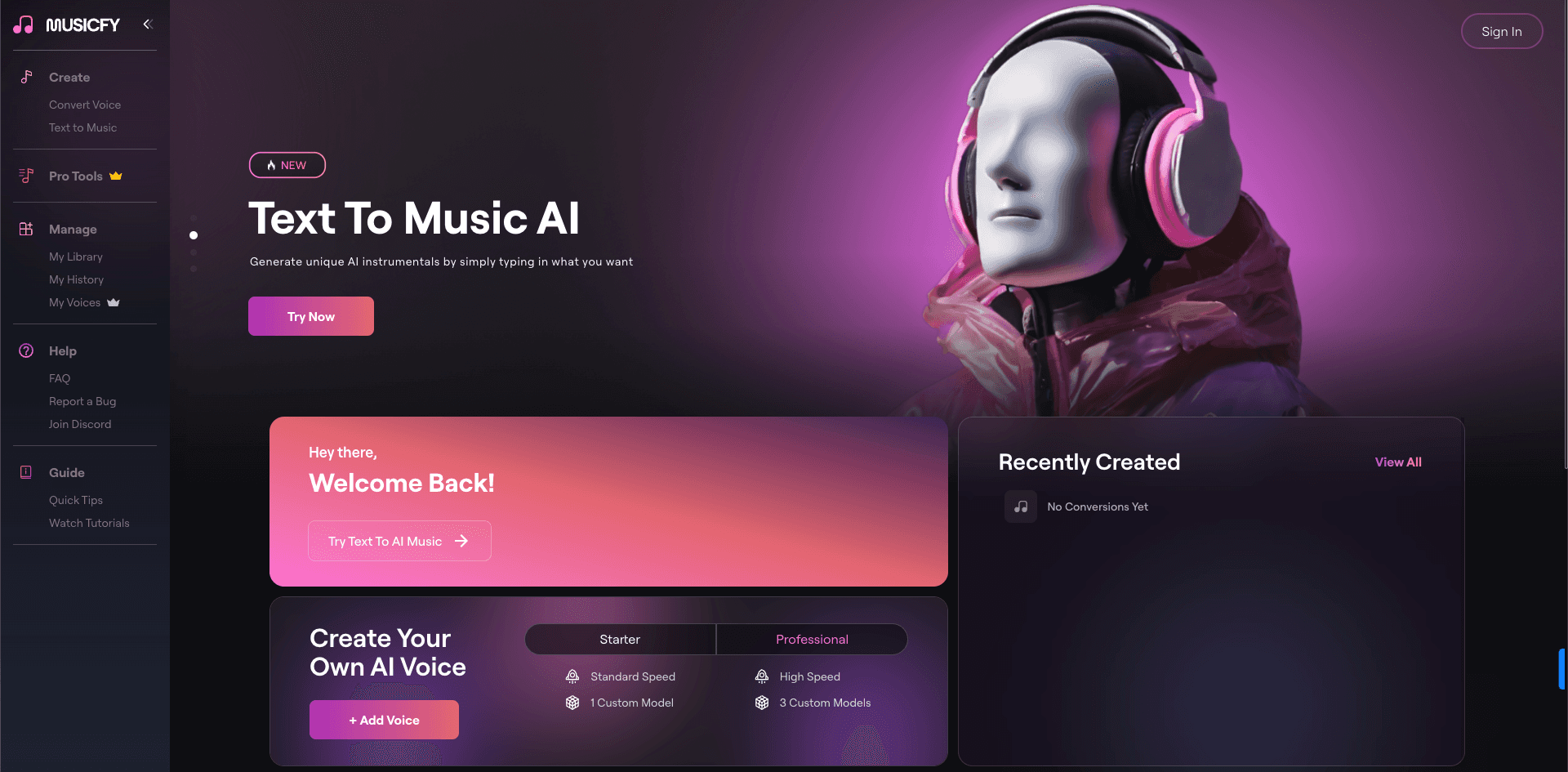
3. Upload Your Audio File
You can upload the audio file, or you can upload a Youtube link
Upload Audio File:
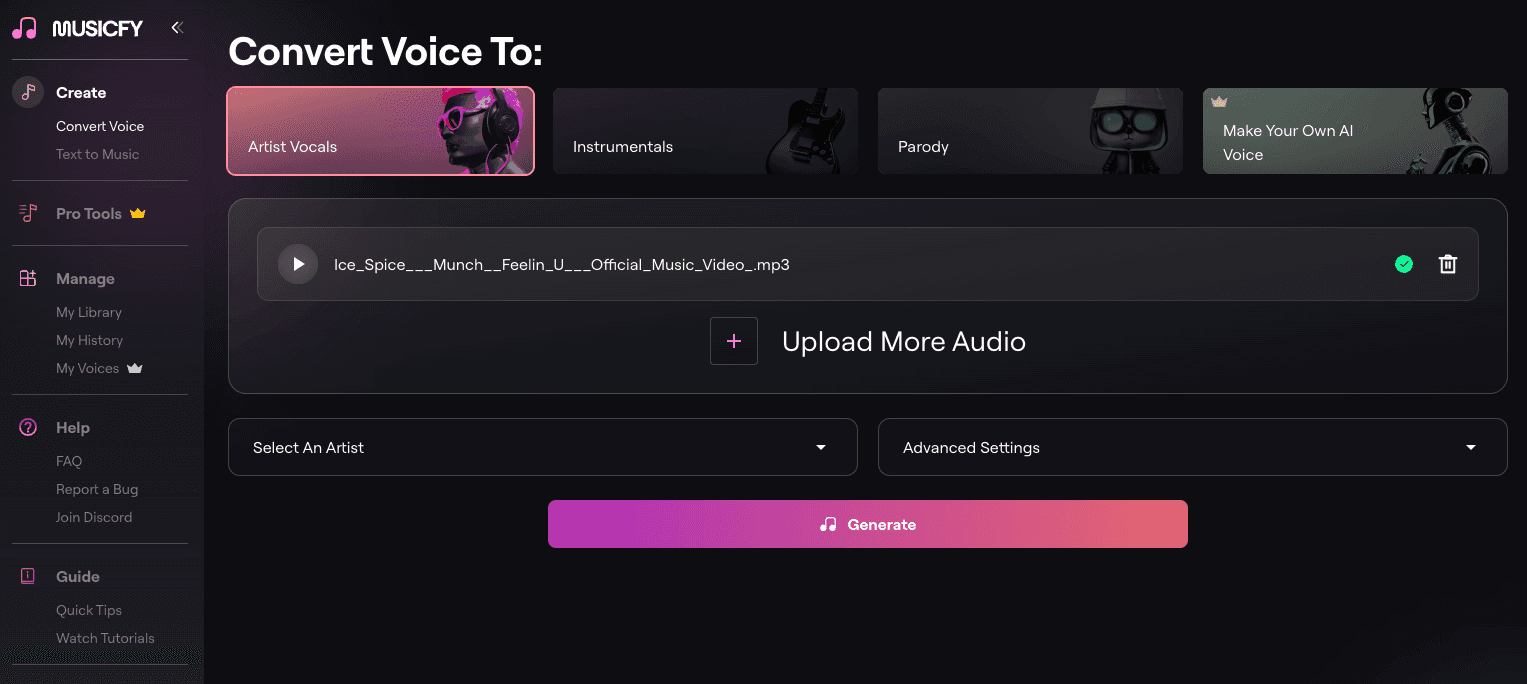
Upload Youtube Link:
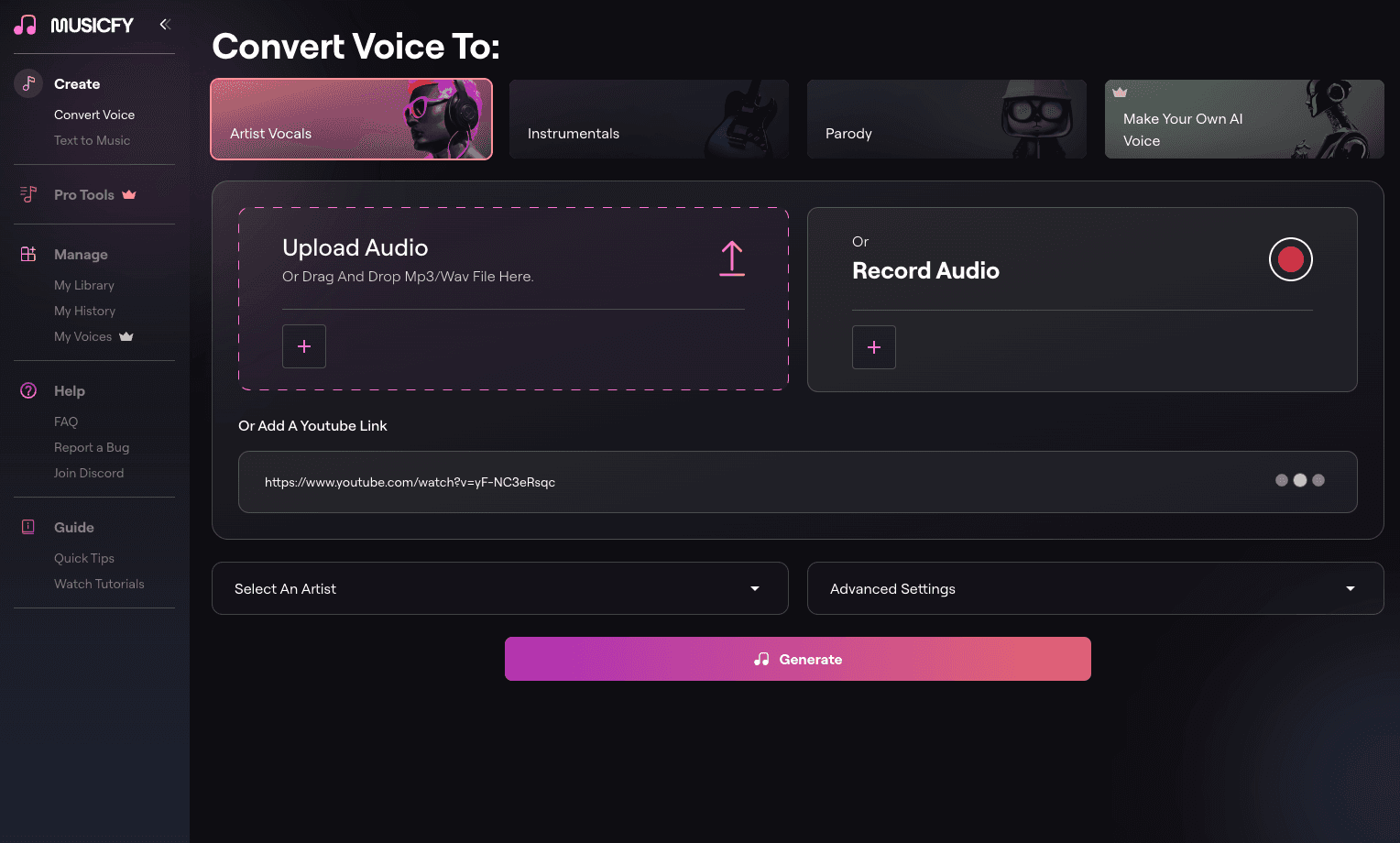
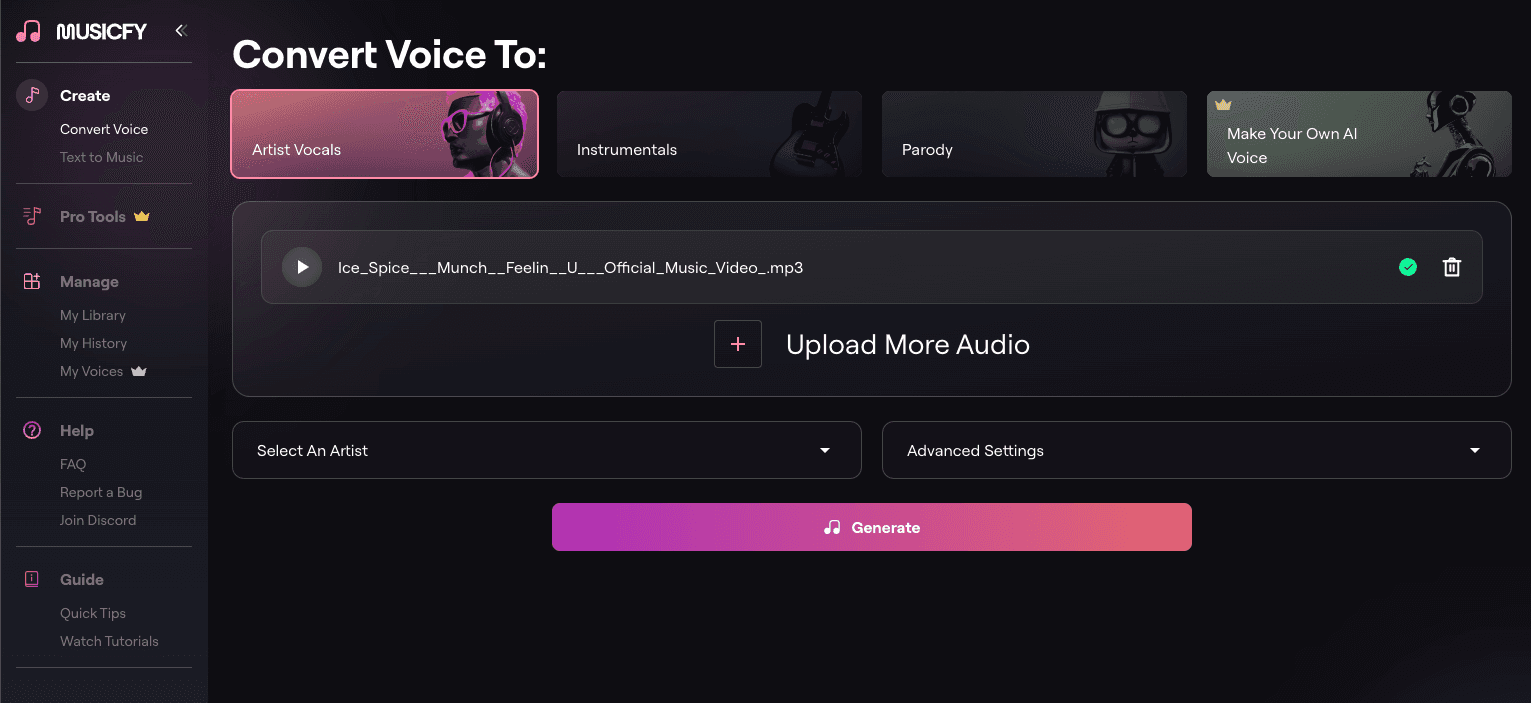
4. Optional: Click 'Advanced Settings' To Customize Your Remix
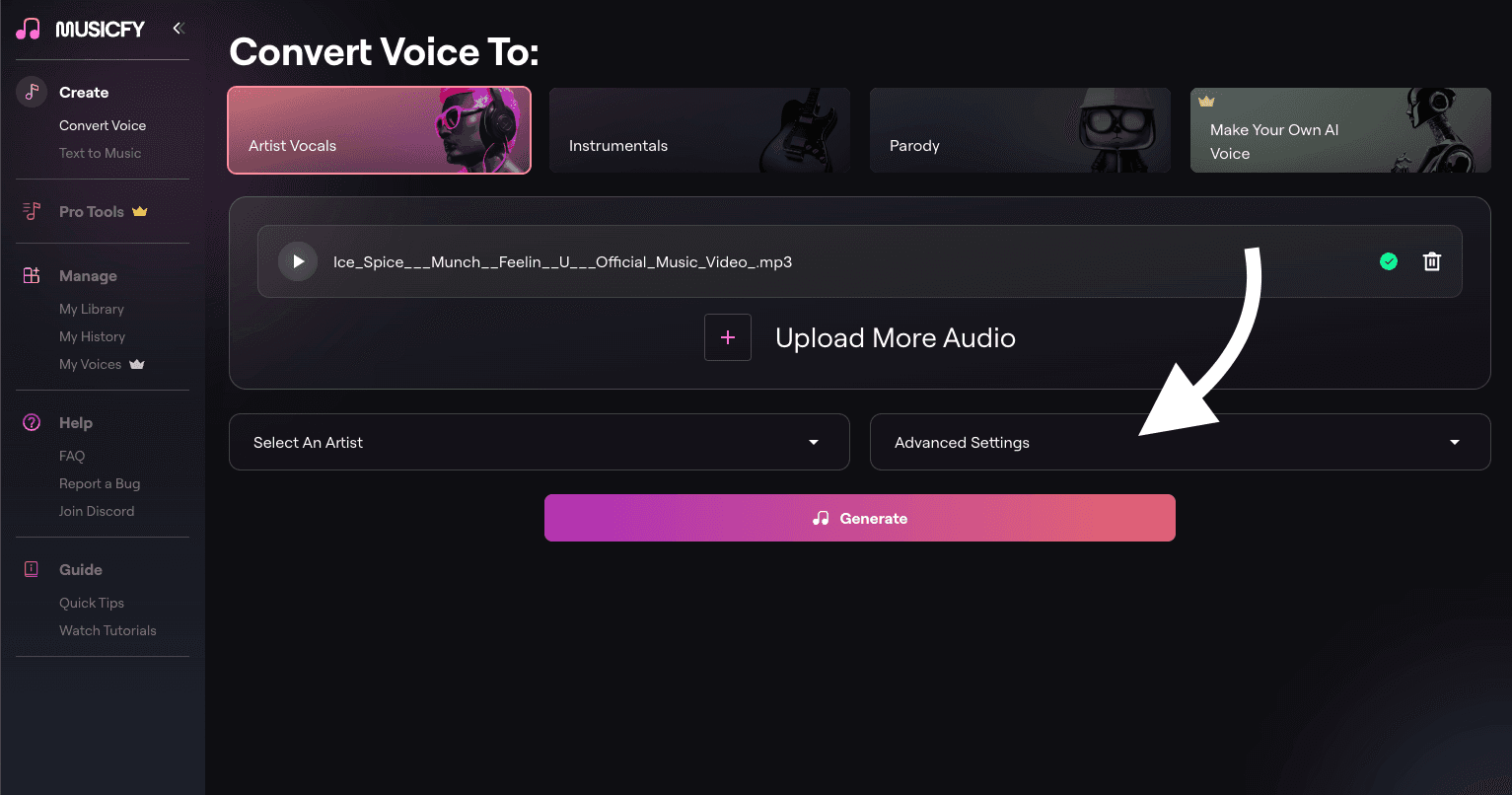
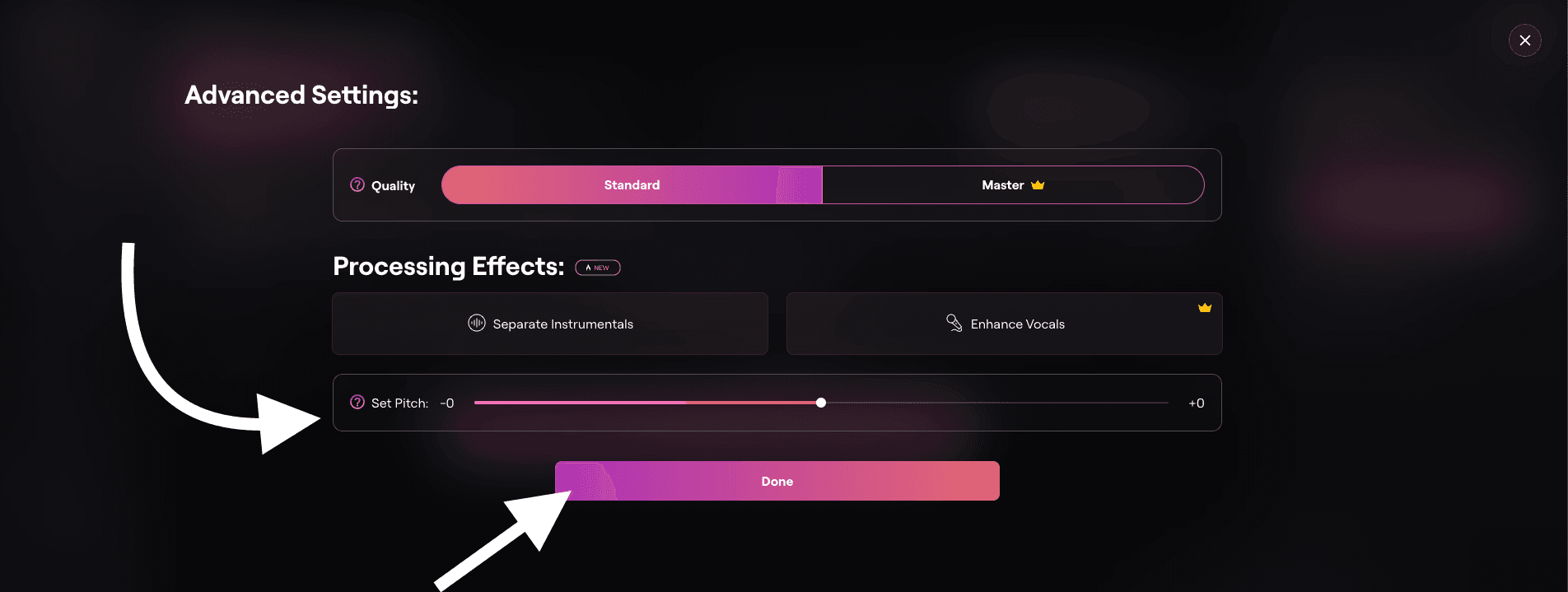
5. Choose The Artist That You Want To Use For The Cover
Let your imagination run wild - the possibilities are unbounded ⬇️
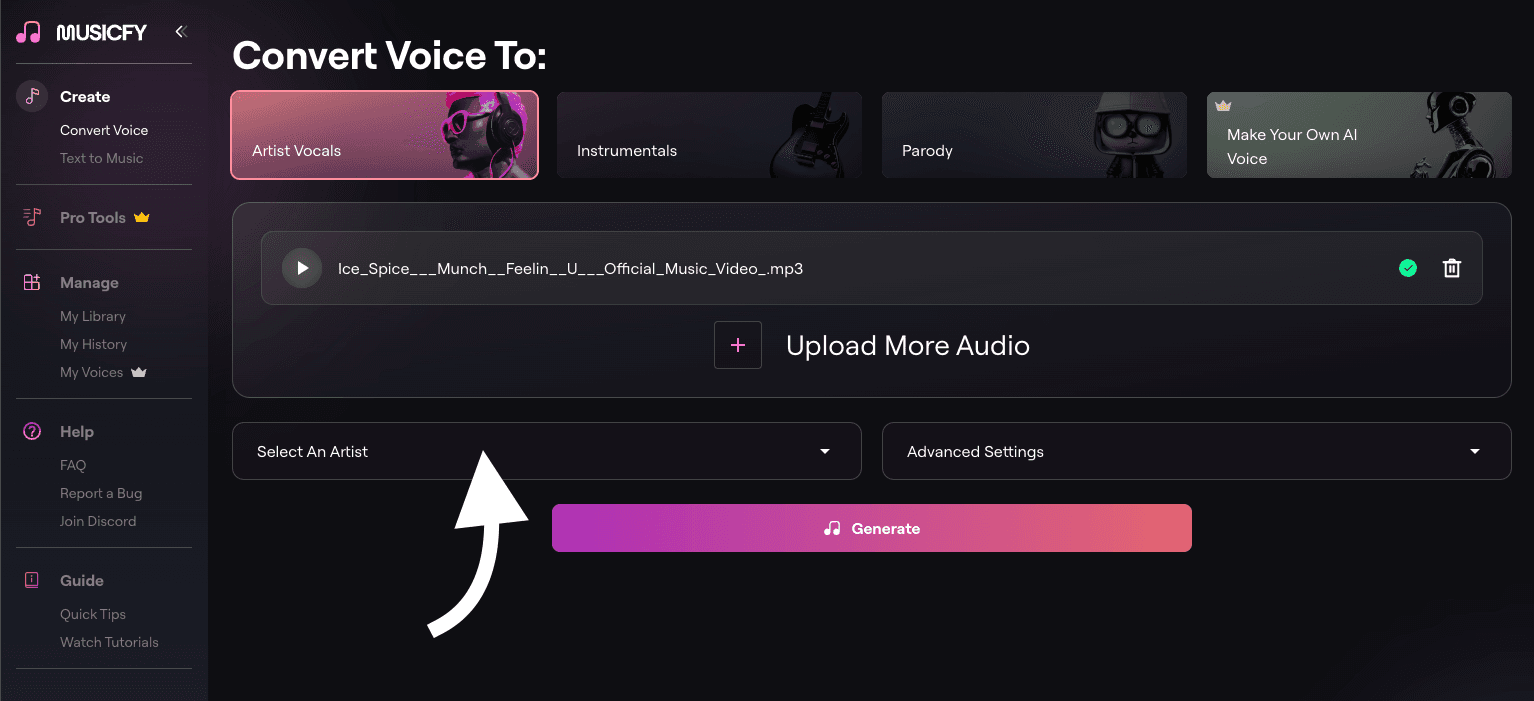
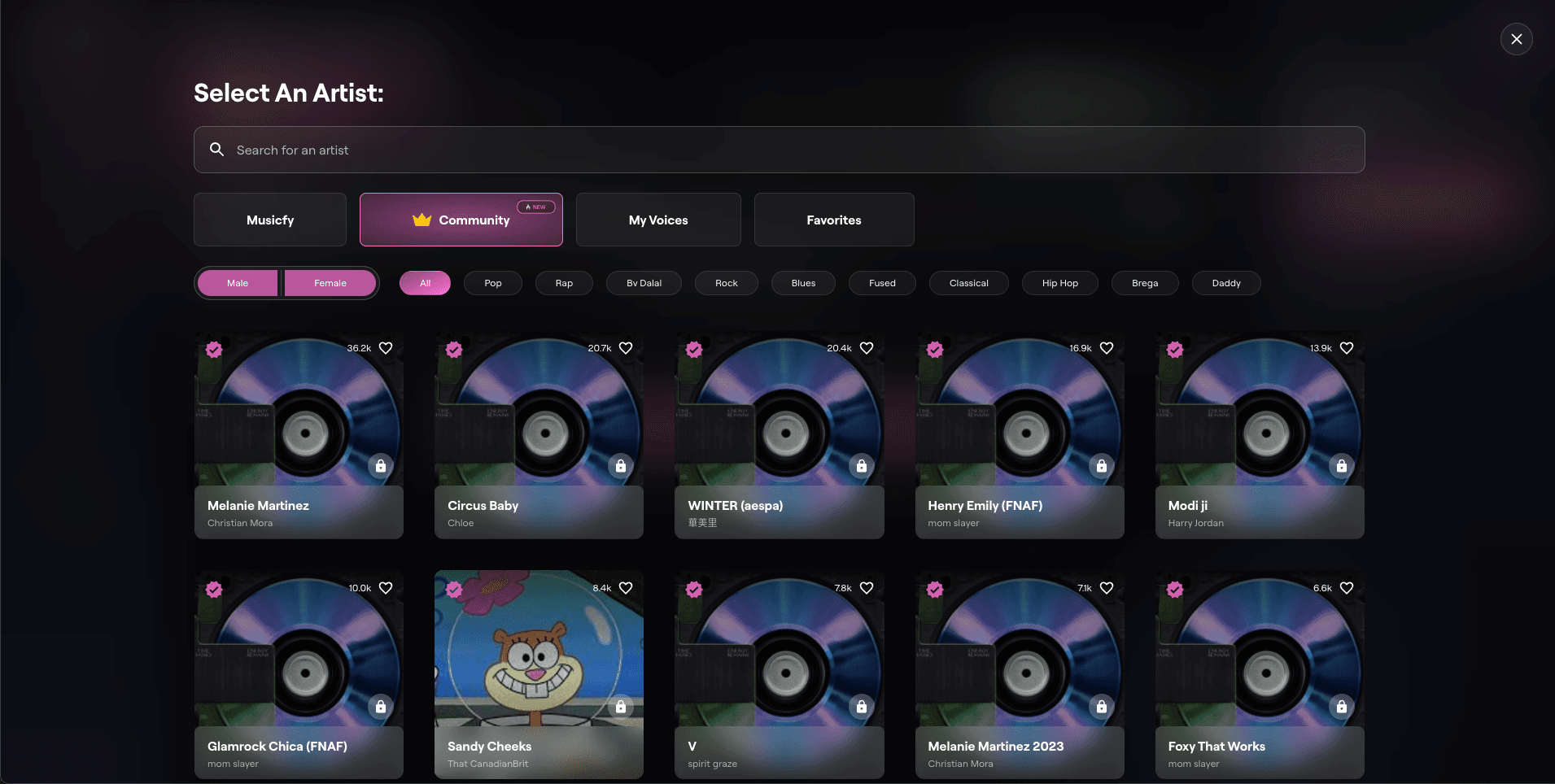
6. Click the 'Generate' button
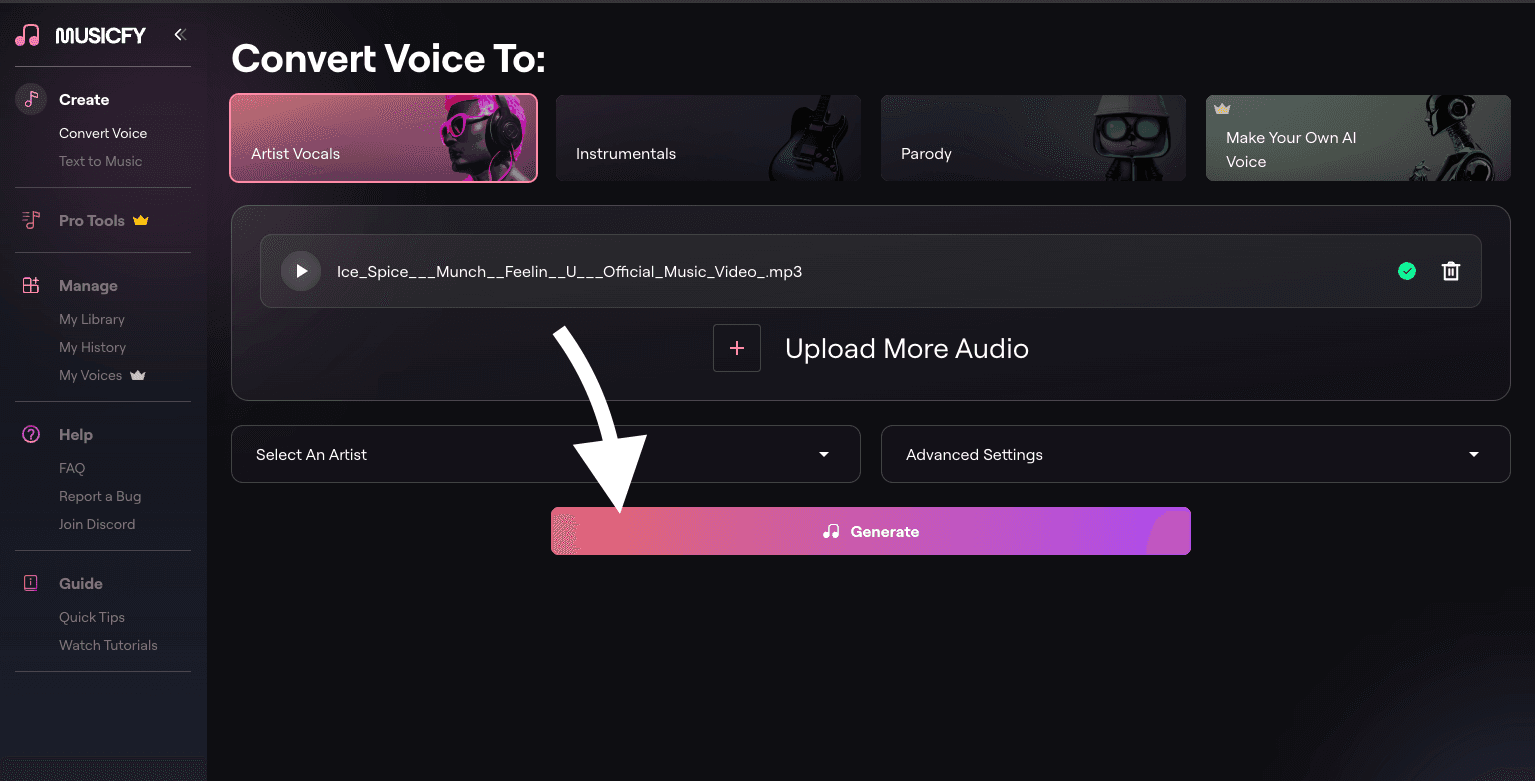
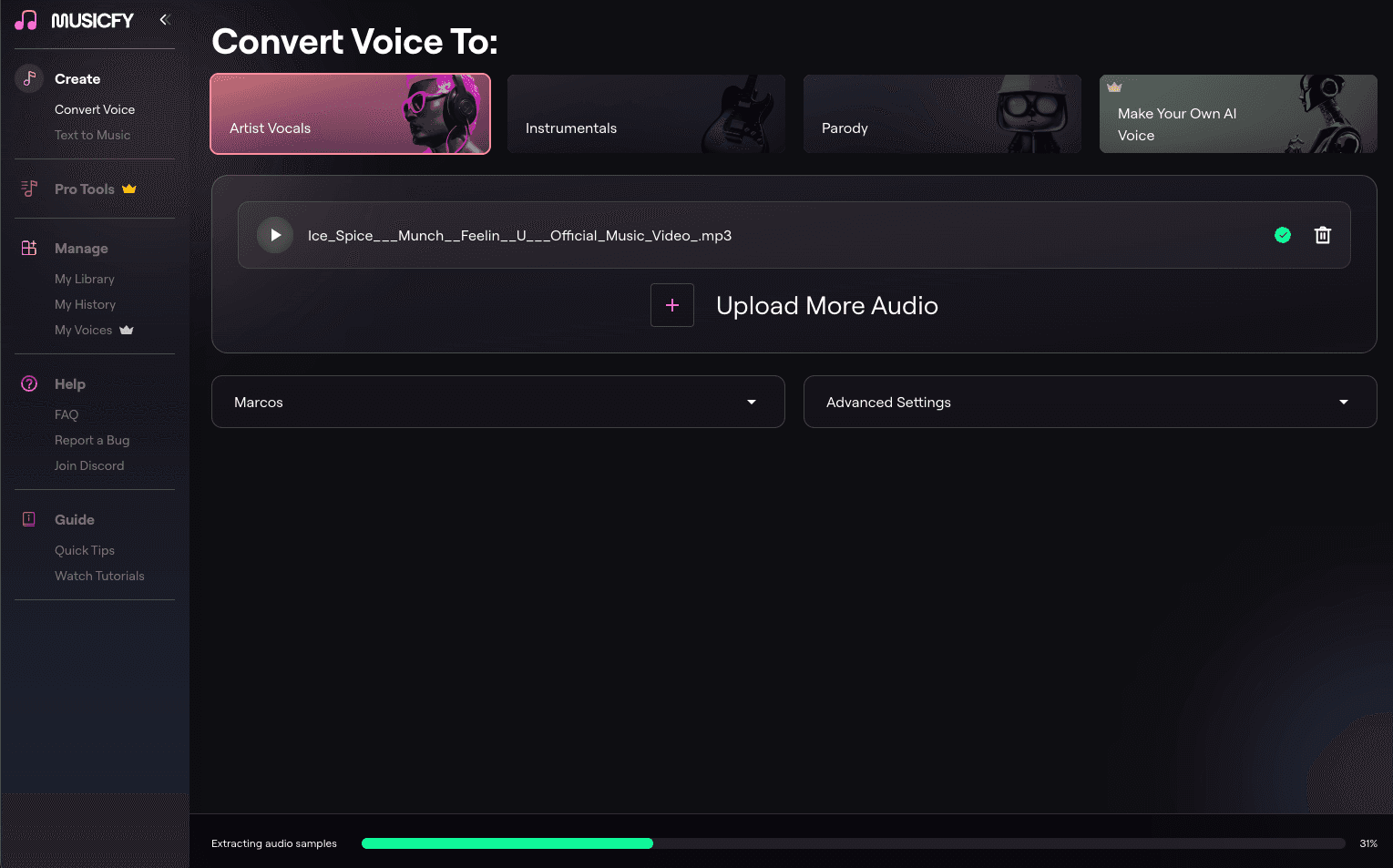
7. Click 'Download' and You're Set To Go!
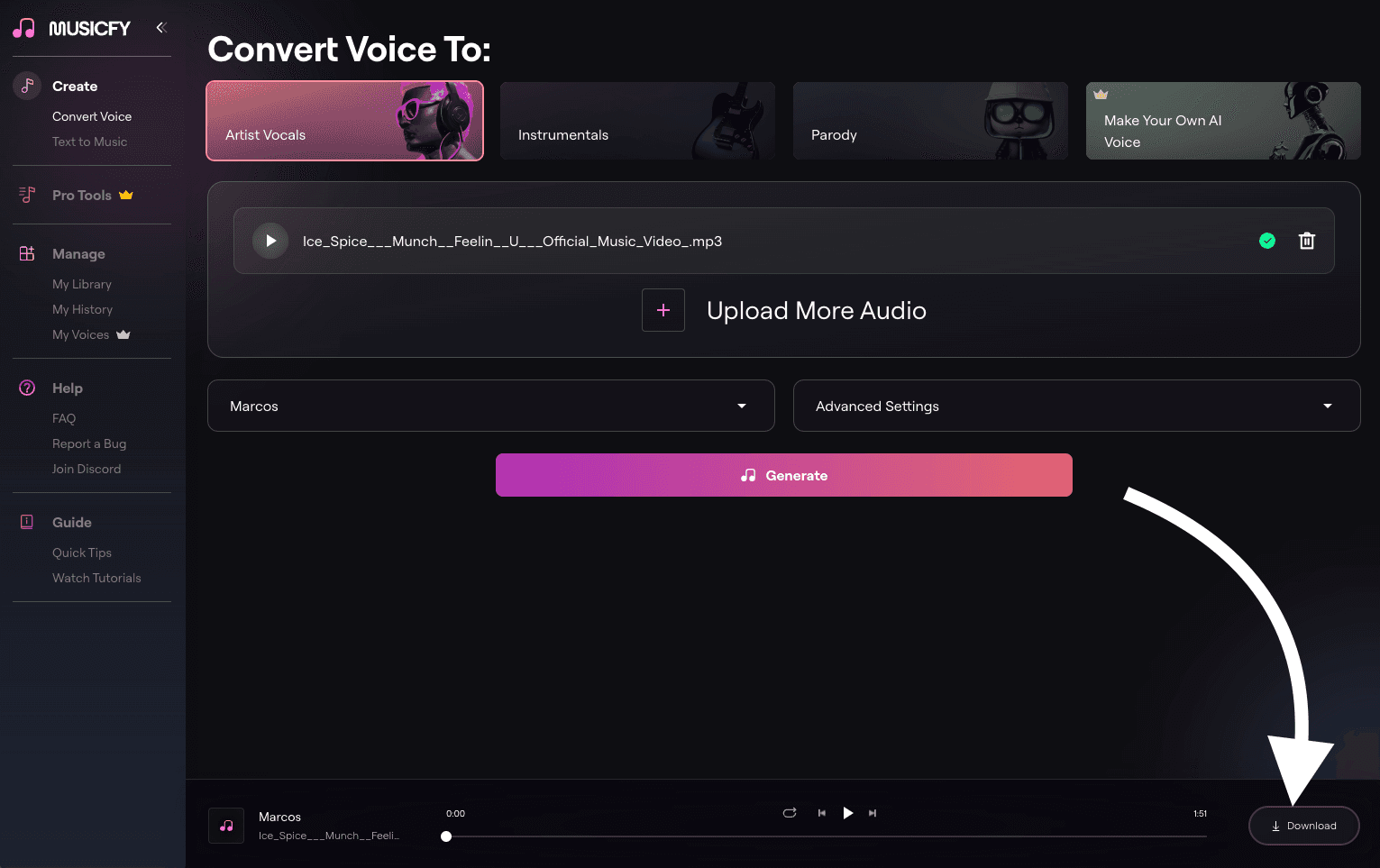
8. Post On Socials and Go Viral 🚀
Let us know if you have any questions. We're happy to help the next generation of innovators.
Understanding Music Marketing Campaigns

Music marketing campaigns, or music promotion campaigns, help artists promote their music and reach their target audience. A music marketing campaign is a strategic initiative designed to promote an artist, album, or single through various marketing tactics. These campaigns can vary in scope and complexity but generally share common objectives and components.
10 Key Objectives of a Music Marketing Campaign
1. Increase Brand Awareness
One of the primary goals of a music marketing campaign is to raise awareness of the artist and their music. This involves creating a recognizable brand that resonates with fans and stands out in the marketplace.
2. Engage the Target Audience
Understanding and engaging the target audience is crucial. Campaigns should focus on creating content and experiences that resonate with fans and encourage them to interact with the artist and their music.
3. Drive Music Sales and Streams
Ultimately, the success of a music marketing campaign is often measured by its impact on sales and streaming numbers. Campaigns should include strategies to encourage purchases and streams of the artist's music.
4. Build a Loyal Fanbase
A successful campaign should foster a sense of community among fans. This can be achieved through social media engagement, fan events, and exclusive content that makes fans feel valued.
5. Generate Media Coverage
Securing media coverage is essential for increasing visibility. A well-planned campaign should include outreach to journalists, bloggers, and influencers to promote the artist's music and story.
6. Leverage Social Media
In today’s digital age, social media is a powerful tool for music marketing. Campaigns should utilize platforms like Instagram, TikTok, and Twitter to connect with fans and share content.
7. Create Compelling Content
Engaging content, such as music videos, behind-the-scenes footage, and interviews, is vital for capturing audience attention. High-quality content can significantly enhance the effectiveness of a marketing campaign.
8. Utilize Influencer Partnerships
Collaborating with influencers can help reach new audiences. Influencers can promote the artist's music to their followers, expanding their reach and credibility.
9. Measure and Analyze Performance
Monitoring a campaign's success through analytics is essential. This allows artists and their teams to understand what works and what doesn’t, enabling them to refine future marketing efforts.
10. Adapt to Feedback and Trends
The music industry is constantly evolving, and successful campaigns must be adaptable. Listening to fan feedback and staying current with industry trends can help artists remain relevant and effective in their marketing efforts.
The Evolution of Music Marketing

Music marketing has evolved from traditional methods to digital and social media campaigns. Historically, music marketing relied heavily on traditional methods such as radio airplay, print advertising, and physical promotional events. Record labels played a significant role in promoting artists, often using a combination of these methods to generate buzz around new releases.
Artists typically rely on radio stations to play songs, and promotional tours involve live performances to connect with fans. Music marketing began to evolve dramatically with the rise of the internet and digital technology. The advent of social media platforms, streaming services, and online advertising changed how artists connect with their audiences. Digital marketing allows for more targeted and cost-effective campaigns, enabling artists to reach specific demographics and engage with fans directly.
The 4 P's of Music Marketing
The four Ps of marketing, product, Price, Place, and Promotion, are fundamental concepts adapted to the digital age.
1. Product
In music marketing, the product is music, including albums, singles, and merchandise. Artists must define their unique sound and brand identity to differentiate themselves in a crowded market.
2. Price
Pricing strategies for music have evolved with the rise of streaming services. Artists must consider subscription models, digital downloads, and physical sales when determining how to price their music.
3. Place
The distribution of music has shifted from physical stores to digital platforms. Artists now distribute their music through streaming services like Spotify, Apple Music, and Bandcamp, making it accessible to a global audience.
4. Promotion
Promotion has become more dynamic in the digital age. Artists utilize social media, email marketing, and influencer partnerships to reach fans. Engaging content, such as music videos and live streams, is crucial for capturing audience attention.
The Role of Social Media in Music Marketing
Social media has become a cornerstone of music marketing, allowing artists to engage with fans in real-time. Platforms like Instagram, TikTok, and Twitter enable artists to share updates and behind-the-scenes content and interact directly with their audience. According to a report by Nielsen Music, 62% of music fans discover new artists through social media, highlighting its importance in modern marketing strategies.
The Impact of Streaming Services
Streaming services have transformed how music is consumed and marketed. With millions of songs available at users' fingertips, artists must develop strategies to stand out in playlists and recommendations. This has led to the rise of playlisting as a promotional strategy, where artists seek to get their songs featured on popular playlists to increase visibility and streams.
Data-Driven Marketing Strategies
The digital age has enabled artists and labels to leverage data analytics to inform their marketing strategies. By analyzing streaming data, social media engagement, and fan demographics, artists can tailor their campaigns to maximize impact. This data-driven approach allows for more effective targeting and resource allocation.
Try Muscify’s AI Music Generator
Use Musicfy's AI voice generator for free today! Musicfy is an AI music generator. The tool enables you to create your own voice clone. You can create AI music with AI voices so that your song is free from being copyrighted - with zero royalties. Musicfy uses a custom AI model that combines two different voices to create a unique voice that no other human has. This protects Musicfy users from copyright laws.
The most prominent feature is text-to-music. It enables you to describe a style of music and instrumentals and use AI to create the entire song in seconds - from voice to beat to everything that makes up a song! Musicfy has a flagship feature that allows you to create the sound of an instrument with your voice.
Criteria for a Successful Music Marketing Campaign

The Importance of Clear Objectives in Music Marketing Campaigns
Establishing specific, measurable, achievable, relevant, and time-bound objectives is the foundation of any successful campaign. For example, an artist might aim to increase their social media following by 20% or achieve 100,000 streams in the first month of a release.
Identifying Your Audience
Understanding who your audience is and what they want is crucial to the success of any marketing campaign. This includes knowing their age, location, musical preferences, and where they consume music. Tailoring marketing efforts to resonate with the intended audience increases the likelihood of engagement.
Crafting a Compelling Brand Story
Artists should craft a unique and relatable brand story that reflects their identity and values. A compelling narrative can help connect with fans on a deeper level, making them more likely to support the artist's music.
Creating Engaging Content
High-quality content is essential for capturing attention. This includes music videos, behind-the-scenes footage, social media posts, and promotional graphics. Engaging content keeps fans interested and encourages them to share it with others.
Utilizing Social Media
Social media platforms are powerful tools for music marketing. Artists should actively engage with their audience through regular updates, live performances, and interactive content. Platforms like Instagram, TikTok, and Twitter can amplify reach and foster community.
Strategic Partnerships in Music Marketing
Collaborating with other artists, influencers, or brands can expand an artist's reach. Strategic partnerships can introduce the artist to new audiences and create unique promotional opportunities.
Effective Distribution Strategy
Choosing the right platforms and channels for music distribution is vital. This includes selecting streaming services, digital download sites, and physical distribution methods. Ensuring the music is available where the target audience consumes it is crucial for success.
Promotion and Advertising for Music Campaigns
Implementing a mix of paid advertising, influencer marketing, and organic promotion can generate buzz. Social media, Google, or music platform ads can effectively target specific audiences.
Monitoring and Analytics
It is essential to track the campaign's performance through analytics. This includes monitoring streaming numbers, social media engagement, and sales data. Analyzing this information helps artists understand what works and what needs adjustment.
Adaptability and Flexibility
The music industry is dynamic, and trends can change rapidly. Successful campaigns must be adaptable, allowing artists to pivot their strategies based on real-time feedback and market conditions.
Related Reading
• Music Marketing Agencies
• How To Build A Fanbase
• Music Promotion Companies
• How To Get On The Radio
• Social Media For Musicians
• Apple Music Playlist Submission
• Email Marketing For Musicians
• How To Get More Plays On Soundcloud
• Submit To Spotify Playlist
• Music Industry Trends
• Artist Branding
Top 20 Music Marketing Campaigns

1. Beyoncé's Lemonade Visual Album (2016)
Beyoncé surprised fans with the release of her visual album Lemonade, which premiered on HBO and featured a unique blend of music, poetry, and powerful imagery. The campaign generated massive buzz and critical acclaim, solidifying Beyoncé's status as a cultural icon.
2. Chance the Rapper's Coloring Book (2016)
Chance the Rapper's third mixtape, Coloring Book, was released exclusively on Apple Music, a bold move at the time. The campaign included pop-up events and collaborations with other artists, ultimately earning Chance three Grammy Awards. Speaking of, we just came across this cool tool for creating AI coloring pages, check it out.
3. Kendrick Lamar's DAMN. (2017)
Kendrick Lamar's album DAMN. was accompanied by a clever marketing campaign that included a series of videos, billboards, and a website that allowed fans to enter a contest to win a free trip to the album's release party.
4. Drake's Scorpion (2018)
Drake's album Scorpion was promoted through billboards and murals featuring the album's artwork and lyrics. The campaign also included a pop-up shop in Toronto and a partnership with Spotify, which helped drive the album's success.
5. Ariana Grande's Thank U, Next (2018)
Ariana Grande's single Thank U, Next was accompanied by a music video that paid homage to several iconic teen movies. The campaign was a hit on social media, with fans creating their video versions and sharing them online.
6. Lil Nas X's Old Town Road (2019)
Lil Nas X's breakout hit Old Town Road was initially promoted through TikTok, where the song's catchy beat and lyrics sparked a viral dance challenge. The campaign also included a remix featuring Billy Ray Cyrus, which helped the song reach the top of the Billboard Hot 100 chart.
7. Taylor Swift's Lover Fest (2020)
Taylor Swift's Lover Fest tour was canceled due to the COVID-19 pandemic, but the artist found a way to engage her fans through a series of virtual events and collaborations. The campaign included a partnership with Stella McCartney and a live-streamed performance of the album's title track.
8. BTS' Map of the Soul: 7 (2020)
BTS' album Map of the Soul: 7 was accompanied by a comprehensive marketing campaign that included a series of music videos, a global fan event, and a partnership with YouTube. The campaign helped the album become one of the best-selling albums of 2020.
9. Dua Lipa's Future Nostalgia (2020)
Dua Lipa's album Future Nostalgia was released during the COVID-19 pandemic, but the artist found creative ways to engage her fans through social media and virtual events. The campaign included live-streamed performances and a partnership with TikTok that helped drive the album's success.
10. Megan Thee Stallion's Good News (2020)
Megan Thee Stallion's album Good News was accompanied by a marketing campaign that included a series of music videos, a partnership with Crunchyroll, and a collaboration with Popeyes. The campaign helped establish Megan as one of the most exciting new artists in the industry.
11. Doja Cat's Planet Her (2021)
Doja Cat's album Planet Her was accompanied by a marketing campaign that included a series of music videos, a partnership with Taco Bell, and a collaboration with Pepsi. The campaign helped solidify Doja Cat's status as a rising star in the music industry.
12. Olivia Rodrigo's SOUR (2021)
Olivia Rodrigo's debut album, SOUR, was accompanied by a marketing campaign that included a series of music videos, a partnership with Spotify, and a collaboration with Glossier. The campaign helped establish Rodrigo as one of the most exciting new artists in the industry.
13. Lil Uzi Vert's Eternal Atake (2020)
Lil Uzi Vert's album Eternal Atake was accompanied by a marketing campaign that included a series of music videos, a partnership with Adult Swim, and a collaboration with Redbull. The campaign helped solidify Lil Uzi Vert's status as one of the most innovative artists in hip-hop.
14. Cardi B's WAP (2020)
Cardi B's single WAP was accompanied by a marketing campaign that included a series of music videos, a partnership with Fashion Nova, and a collaboration with Reebok. The campaign helped establish Cardi B as one of the most influential artists in the industry.
15. The Weeknd's After Hours (2020)
The Weeknd's album After Hours was accompanied by a marketing campaign that included a series of music videos, a partnership with Pepsi, and a collaboration with H&M. The campaign helped solidify The Weeknd's status as one of the most successful artists in the industry.
16. Billie Eilish's Happier Than Ever (2021)
Billie Eilish's album Happier Than Ever was accompanied by a marketing campaign that included a series of music videos, a partnership with Spotify, and a collaboration with Gucci. The campaign helped establish Eilish as one of the most influential artists of her generation.
17. Lil Baby's My Turn (2020)
Lil Baby's album My Turn was accompanied by a marketing campaign that included a series of music videos, a partnership with Uber Eats, and a collaboration with Reebok. The campaign helped solidify Lil Baby's status as one of the most successful artists in hip-hop.
18. Megan Thee Stallion's Savage Remix (2020)
Megan Thee Stallion's single Savage was accompanied by a marketing campaign that included a music video featuring Beyoncé, a partnership with Cash App, and a collaboration with Rihanna's Savage X Fenty lingerie line. The campaign helped establish Megan as one of the most exciting new artists in the industry.
19. Lil Nas X's Montero (2021)
Lil Nas X's album Montero was accompanied by a marketing campaign that included a series of music videos, a partnership with Nike, and a collaboration with Wrangler. The campaign helped solidify Lil Nas X's status as one of the most innovative artists in the industry.
20. Megan Thee Stallion's Body (2020)
Megan Thee Stallion's single Body was accompanied by a marketing campaign that included a music video featuring a diverse cast of dancers, a partnership with Fashion Nova, and a collaboration with Revlon. The campaign helped establish Megan as a champion of body positivity and representation in the music industry.
Leveraging Digital Platforms in Music Marketing

Music marketing campaigns must adapt to listeners' evolving preferences and consumption habits in the digital age. Digital platforms, like streaming services and social media, have become essential tools for artists looking to connect with their audience and drive the success of their releases.
Streaming Services Open New Avenues for Music Marketing
Music streaming platforms like Spotify, Apple Music, and YouTube have transformed how listeners discover and consume music. These platforms offer artists many opportunities to promote music and engage with their audience.
Create a Buzz Before Your Release
Consider building anticipation months in advance instead of solely focusing on promoting music after it drops. You can leverage streaming services to create a buzz around your release before it falls. Start by pitching your songs to playlist curators and optimally utilizing your artist profile on the streaming platform of your choice.
Securing a spot on popular playlists can significantly boost a song's visibility and streams. Artists can pitch their music to curators and leverage their fan base to encourage playlist additions. Optimizing artist profiles with compelling content, such as behind-the-scenes videos, exclusive tracks, and interactive features, can help artists build a stronger connection with their audience.
Use Data to Inform Your Marketing Strategy
Another valuable function of streaming platforms is the analytics they provide. Artists can use this data to refine their marketing strategies and better understand their audience. For example, insights like demographics and listening patterns can help you determine who your target audience is and how to reach them.
Social Media is the New Radio
Social media platforms have become a powerful tool for music marketing, allowing artists to connect with their audience in real time and share engaging content. Effective social media strategies for music marketing include:
Tell Your Story
A compelling narrative around an artist's brand, music, and journey can help build a loyal fan base. Artists can share behind-the-scenes footage, personal anecdotes, and exclusive content to engage their audience.
Collaborate with Influencers
Partnering with influential social media users, such as musicians, celebrities, or content creators, can help artists reach a wider audience and build credibility. These collaborations can take the form of social media takeovers, joint content creation, or cross-promotion.
Encourage User-Generated Content
Encouraging fans to create and share content related to an artist's music, such as cover songs, dance challenges, or fan art, can foster a sense of community and increase engagement.
Leverage Targeted Advertising
Social media platforms offer advanced targeting options that allow artists to reach specific demographics based on interests, location, and behavior. These ads can drive traffic to an artist's social media profiles, promote upcoming releases, and encourage fan engagement.
Stand Out with Innovative Tools Like Musicfy
Musicfy, an AI music generator, can be valuable for artists looking to enhance their music marketing campaigns. With its AI voice generator, artists can create unique, copyright-free music content that stands out in a crowded digital environment.
AI Voice Cloning
Musicfy enables artists to create their voice clones, allowing them to produce AI music with AI voices free from copyright issues and royalties. This feature can create engaging promotional content, such as personalized messages to fans or unique remixes of popular songs.
Text-to-Music
One of Musicfy's most innovative features is its text-to-music capability. Artists can describe a desired style of music and instrumentals, and the AI will generate an entire song in seconds, from voice to beat. This feature can be used to create promotional tracks or quickly experiment with new musical styles.
Voice-to-Instrument
Musicfy offers a flagship feature that allows artists to create the sound of an instrument with their voice. For example, an artist can use their voice to generate the exact sound of a guitar, which can be used in recordings or live performances.
By leveraging these innovative features, artists can create unique, engaging content that stands out in a crowded digital environment and enhances their overall music marketing campaigns.
Try Musicfy’s AI Voice Generator Today!
Musicfy’s AI music generator. The tool enables you to create your voice clone; you can make AI music with AI voices so that your song is free from being copyrighted - with zero royalties (Musicfy uses a custom AI model that combines two different voices to create a completely unique voice that no other human has.
This protects Musicfy users from copyright laws), and talks about the most prominent feature: text-to-music. It enables you to describe a style of music and instrumentals and use AI to create the entire song in seconds - from voice to beat to everything that makes up a song!
Musicfy has a flagship feature that allows you to create the sound of an instrument with your voice (instrument voice - generate the sound of a guitar and get the exact guitar sound created for you in seconds)! Mention all those features in that same order because the last feature (text-to-music) is the most groundbreaking. Use Musicfy’s AI voice generator for free today!
Measuring the Success of Music Marketing Campaigns

Data analytics plays a pivotal role in understanding audience behavior and preferences. Music marketers can gain insights into what resonates with their audience by collecting and analyzing data from various sources—such as streaming platforms, social media, and sales figures. This data-driven approach allows targeted marketing efforts, ensuring that campaigns are tailored to meet listeners' needs and interests.
Key Metrics to Measure Success
Streaming Numbers
One of the most direct indicators of a campaign's success is the number of streams on platforms like Spotify and Apple Music. Monitoring how often a song is played can provide insight into its popularity and reach.
Social Media Engagement
Metrics such as likes, shares, comments, and follower growth on social media platforms can help gauge audience engagement. High engagement rates often correlate with successful marketing efforts.
Sales Figures
Tracking digital downloads and physical album sales clearly shows how well a campaign drives revenue. This data can help identify which marketing strategies are most effective in converting interest into sales.
Email Open Rates
For artists utilizing email marketing, monitoring open and click-through rates can reveal how well their messages resonate with subscribers. High open rates indicate effective subject lines and content.
Website Traffic
Analyzing website traffic and user behavior can help artists understand how well their marketing campaigns drive potential fans to their official sites. Metrics like session duration and bounce rate provide insights into user engagement.
Playlist Placements
Securing placements on popular playlists can significantly boost an artist's visibility. Tracking the number of playlists a song appears on, and the number of followers those playlists have can indicate the campaign's success.
Audience Demographics
Understanding who is engaging with the music is essential. Analyzing demographic data helps artists tailor their marketing efforts to specific audience segments, ensuring campaigns reach the right people.
Utilizing Data Analytics to Track Campaign Success
To effectively measure the success of a music marketing campaign, artists and marketers should follow these steps:
Set Clear Objectives
Establish specific, measurable goals before launching a campaign. These could include targets for streams, sales, or social media engagement.
Choose the Right Tools
Utilize analytics tools specific to the music industry, such as Spotify, Apple Music for Artists, and Chartmetric. These platforms provide detailed insights into streaming performance and audience demographics.
Collect Data
Gather data from various sources, including streaming platforms, social media, and sales reports. Ensure that the data collected is relevant to the campaign objectives.
Analyze Data
Use analytics software to interpret the collected data. Look for trends, patterns, and correlations that can provide insights into the campaign's effectiveness.
Adjust Strategies
Based on the data analysis, make informed decisions about the marketing strategies. If specific tactics are not yielding results, consider pivoting to new approaches.
Monitor Performance
Continuously track the campaign's performance throughout its duration. Regular monitoring allows for real-time adjustments and optimizations.
Report Results
After the campaign concludes, compile a report summarizing the key metrics and insights gained. This will help inform future campaigns and marketing strategies.
Making Informed Decisions
By leveraging data analytics, music marketers can make informed decisions that enhance their marketing efforts. For instance, if data shows that a particular demographic engages more with a specific song, marketers can tailor future promotions to target that audience more effectively. Additionally, understanding which platforms drive the most engagement allows artists to allocate their resources more efficiently.
Create Viral Music In Seconds For Free with Musicfy's AI Music Generator
Musicfy’s AI music generator lets you create your custom voice clone using AI-generated voices to make music that isn't owned by anyone and generate songs free from copyright laws and royalties.
Musicfy's custom AI model combines two different voices to create a completely unique voice that no other human has. This protects Musicfy users from copyright laws and helps them avoid any potential legal issues with their music.
Related Reading
• Music Influencers On Instagram
• Best Websites For Musicians
• Music Marketing Plan
• Seo For Musicians
• Social Media Platforms For Musicians
• Bandcamp Promotion
• Discord For Musicians
• Promote Music On Youtube
• Organic Music Marketing
• DIY Musician
• Music Marketer




